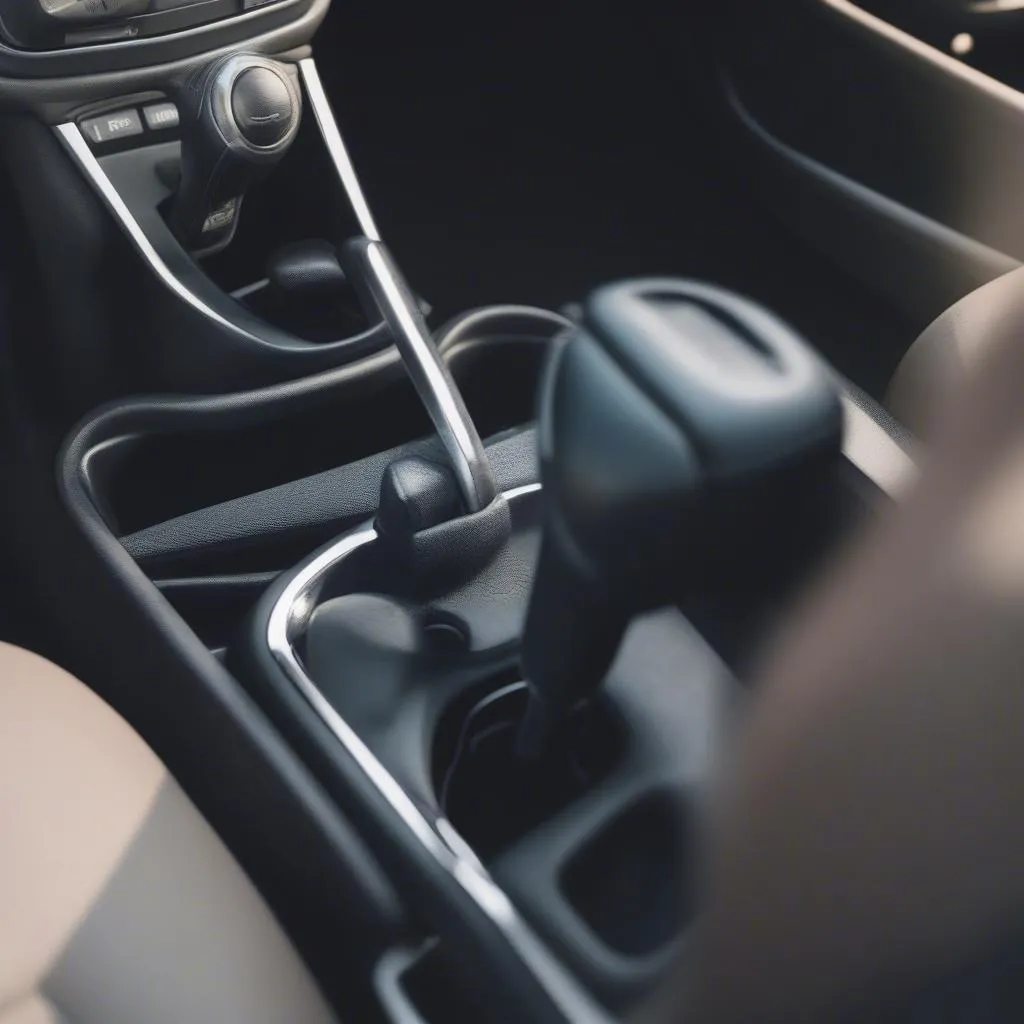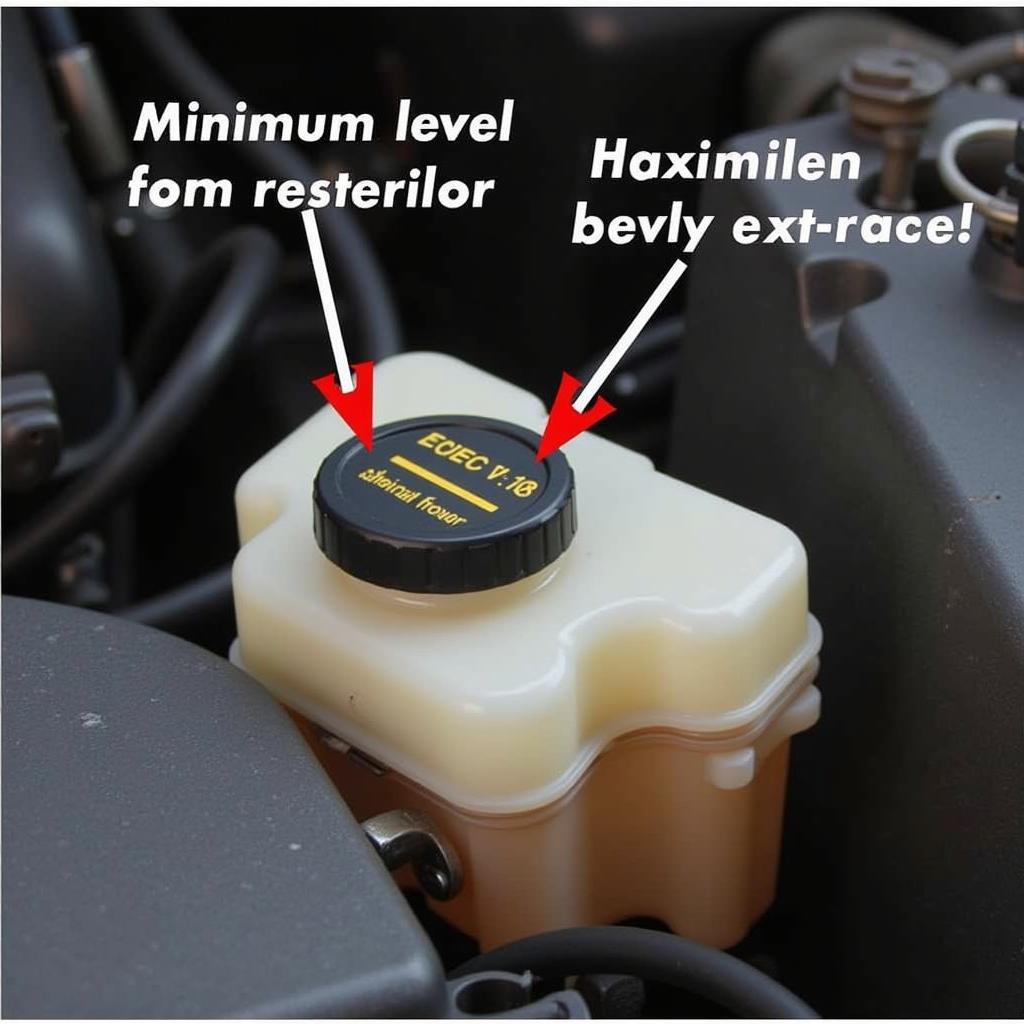This is a common question that many car owners have. The short answer is: it depends. While a brake warning light on your dashboard can be an indicator of a serious problem that could prevent your vehicle from passing inspection, it’s not always a guaranteed fail.
What Does the Brake Warning Light Mean?
The brake warning light is designed to alert drivers to potential issues with the braking system. This could include anything from low brake fluid to a problem with the brake pads or calipers.
How Do Brake Lights Affect Inspections?
The specific requirements for vehicle inspections vary depending on your state or region. However, most jurisdictions consider a functioning braking system to be crucial for safe driving. Therefore, a brake warning light can be a red flag for inspectors, especially if it indicates a serious issue.
Will I Pass Inspection with a Brake Warning Light on?
It’s highly recommended to have your brake warning light checked by a mechanic as soon as possible. Here are some factors that can influence whether your car will pass inspection with a brake warning light on:
-
The Cause of the Warning Light: If the light is due to a minor issue like low brake fluid, it’s more likely that you can fix it quickly and pass inspection. However, if the light is caused by a more serious problem, like a faulty brake caliper or worn brake pads, you might need to get repairs done before passing.
-
The Severity of the Problem: Even if the light is caused by a minor issue, the severity of the problem can affect inspection results. For example, if your brake fluid is significantly low, this could indicate a leak that might be considered a safety hazard.
-
State or Regional Regulations: The specific requirements for vehicle inspections can vary significantly between states and regions. Some states may have stricter standards than others, so it’s essential to check your local requirements.
Expert Insight:
“If you’re facing a brake warning light, it’s best to err on the side of caution,” says John Smith, a certified automotive technician with over 15 years of experience. “Even if you think the issue is minor, it’s worth having it checked by a professional to ensure your vehicle is safe and roadworthy.”
What Can I Do If My Brake Warning Light Is On?
If your brake warning light is on, you should take the following steps:
- Park Your Car: If possible, park your car in a safe location and avoid driving it.
- Check Your Brake Fluid: Open the hood and locate the brake fluid reservoir. If the fluid level is low, top it off with the appropriate type of brake fluid.
- Check Your Brake Pads: If you’re comfortable with basic automotive maintenance, you can check your brake pads for wear. If they’re worn down, they’ll need to be replaced.
Can I Fix the Issue Myself?
Depending on the cause of the warning light, you might be able to fix the issue yourself. For example, if the light is caused by low brake fluid, you can simply top it off. However, if the light is caused by a more serious problem, you should take your car to a mechanic for professional repairs.
Expert Insight:
“While some minor brake issues can be addressed with simple repairs, it’s essential to have a qualified mechanic diagnose the problem and make any necessary repairs,” says Sarah Johnson, a licensed auto mechanic. “Attempting to fix a complex brake problem yourself can be dangerous and could lead to further damage.”
What to Expect at the Inspection
When you take your car to be inspected, the inspector will likely check the following:
- Brake Fluid Level: They’ll inspect the brake fluid reservoir to ensure that the fluid level is adequate.
- Brake Pads and Rotors: They’ll inspect the brake pads and rotors for wear and tear.
- Brake Lines: They’ll inspect the brake lines for leaks or damage.
- Brake Calipers: They’ll inspect the brake calipers for proper function.
What Happens If My Car Fails Inspection?
If your car fails inspection due to a brake warning light, you’ll need to have the issue addressed by a mechanic and then have your car re-inspected.
Conclusion
It’s never a good sign to see a brake warning light come on. This often indicates a problem that needs to be addressed. While you might be able to pass inspection with a minor issue, the best course of action is to have your brakes inspected by a professional. This will ensure that your car is safe and roadworthy and that you’re not risking your safety or a potential inspection failure.
[brake warning sign on dashboard]
FAQ
Q: How serious is a brake warning light?
A: It can be a sign of a serious issue, but it could also be something simple like low brake fluid. It’s best to have it checked by a mechanic.
Q: What happens if I ignore a brake warning light?
A: Ignoring the warning light can lead to further damage to your brake system and potentially cause a dangerous situation while driving.
Q: How much will it cost to fix a brake warning light?
A: The cost of repairing a brake warning light can vary depending on the cause of the problem. It’s best to get a quote from a mechanic.
Q: Can I drive my car with a brake warning light on?
A: It’s generally not recommended to drive with a brake warning light on. You should have it checked by a mechanic as soon as possible.
Q: What if my car fails inspection due to a brake warning light?
A: If your car fails inspection, you’ll need to have the issue addressed by a mechanic and then have your car re-inspected.


